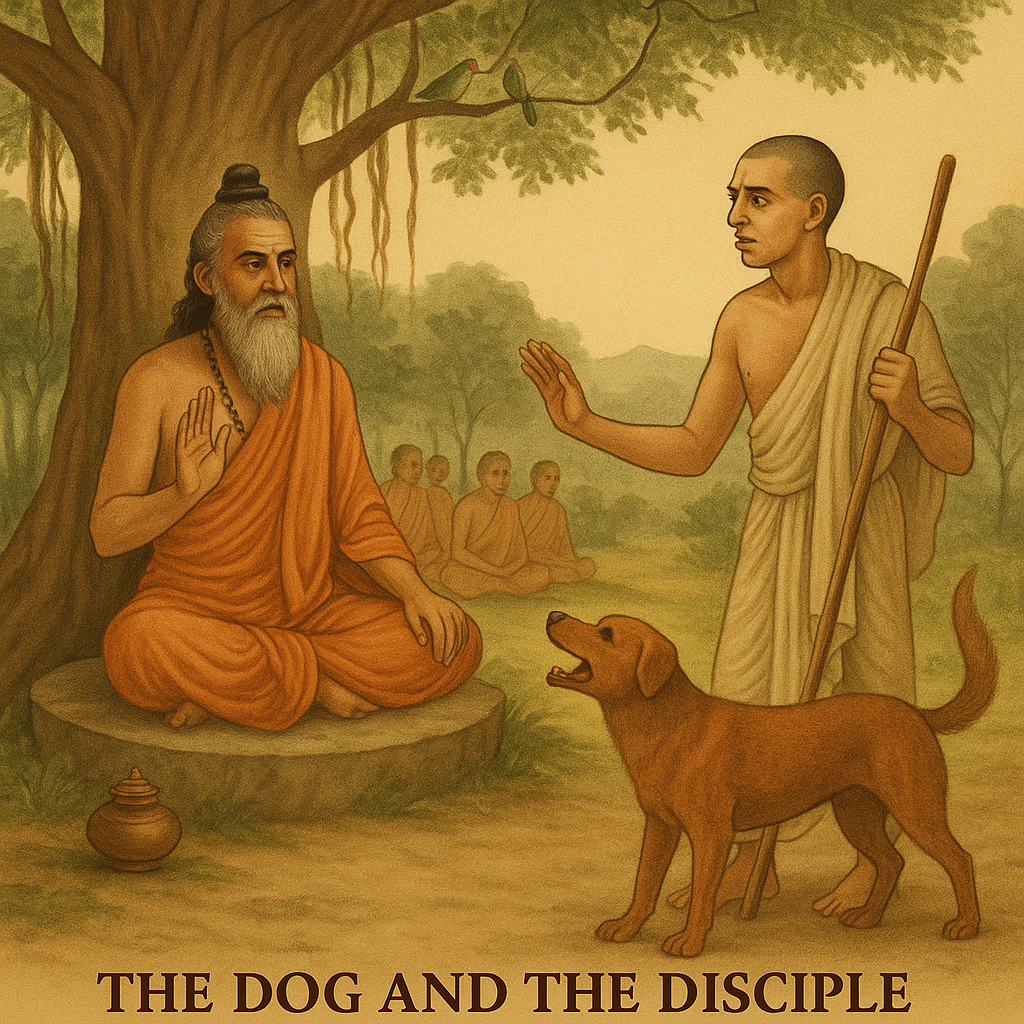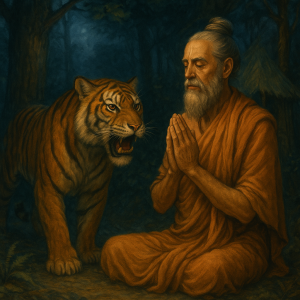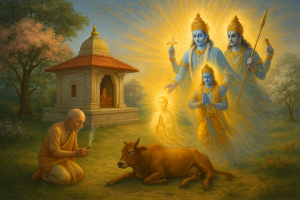The Bark Beyond the Bark
A Morning in the Āśrama
In a tranquil forest hermitage, where parrots echoed Sanskrit verses and the scent of sandalwood wafted from the temple altar, a disciple was performing his daily duties. The sun had barely risen. He was sweeping the pathways with devotion, humming the holy names.
Suddenly, a dog began barking — loud, relentless, sharp. It disturbed the calm atmosphere and broke his concentration. Irritated, the disciple picked up a stone and hurled it toward the dog. The dog yelped and ran.
Pleased that peace was restored, the disciple resumed his work, unaware that something far more profound had just been disturbed — his own inner balance.
The Guru’s Gaze
That afternoon, as the guru sat beneath a banyan tree surrounded by his students, his eyes searched for the culprit.
“Who threw a stone at the barking dog this morning?” he asked, his voice calm but grave.
The disciple stood up, somewhat defensively. “Gurudeva, it was me. The dog disturbed the peace of the āśrama, and our meditation. I was only doing what seemed necessary.”
The guru closed his eyes briefly, then opened them, piercing into the disciple’s heart.
“That dog,” he said, “was no ordinary animal. It was a soul sent to test your compassion. That barking was your opportunity. And you failed.”
The disciple’s heart sank. His pride crumbled. “I am sorry, Gurudeva… I acted in haste.”
The guru nodded. “Better to be disturbed by barking than by anger. The silence of your heart matters more than the silence of the forest.”
The Revelation
Later, the guru revealed to the students that the dog was in fact a wandering sage in disguise — a soul performing austerities in the form of an animal, having accepted such birth due to past karma but continuing spiritual progress.
“You did not harm a beast,” the guru explained, “you bruised a devotee. But take heart — remorse is the beginning of transformation.”
Lessons and Reflections
- React with Awareness: When disturbed, pause. React not with impulse but with patience. Behind every annoyance may hide a divine lesson.
- Compassion Over Control: We often seek control of the outer environment, but bhakti calls for control over the inner self — the mind and temper.
- See with the Eye of Śāstra: Even a barking dog may be a sage in disguise. Kṛṣṇa’s līlā is deeper than what the senses perceive.
As Lord Kapila says in Śrīmad-Bhāgavatam (3.29.22):
“One who sees all living entities as My parts and parcels, and who sees Me within them, never hates or injures any creature.”
Source: This story is thematically rooted in the chapter The Fire and the Ecstasy: My Initiation into Krishna Consciousness, where Steven J. Rosen (Satyaraja Dāsa)


